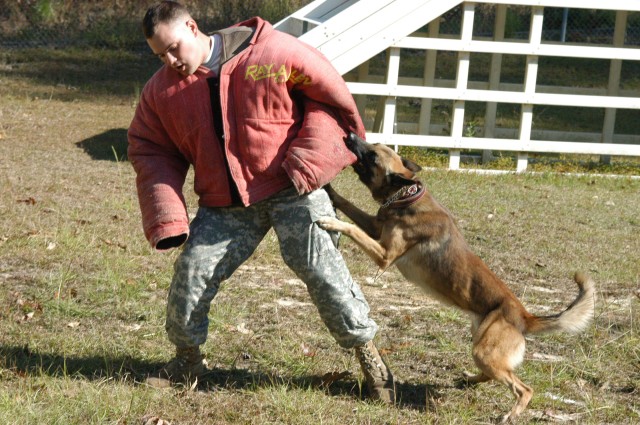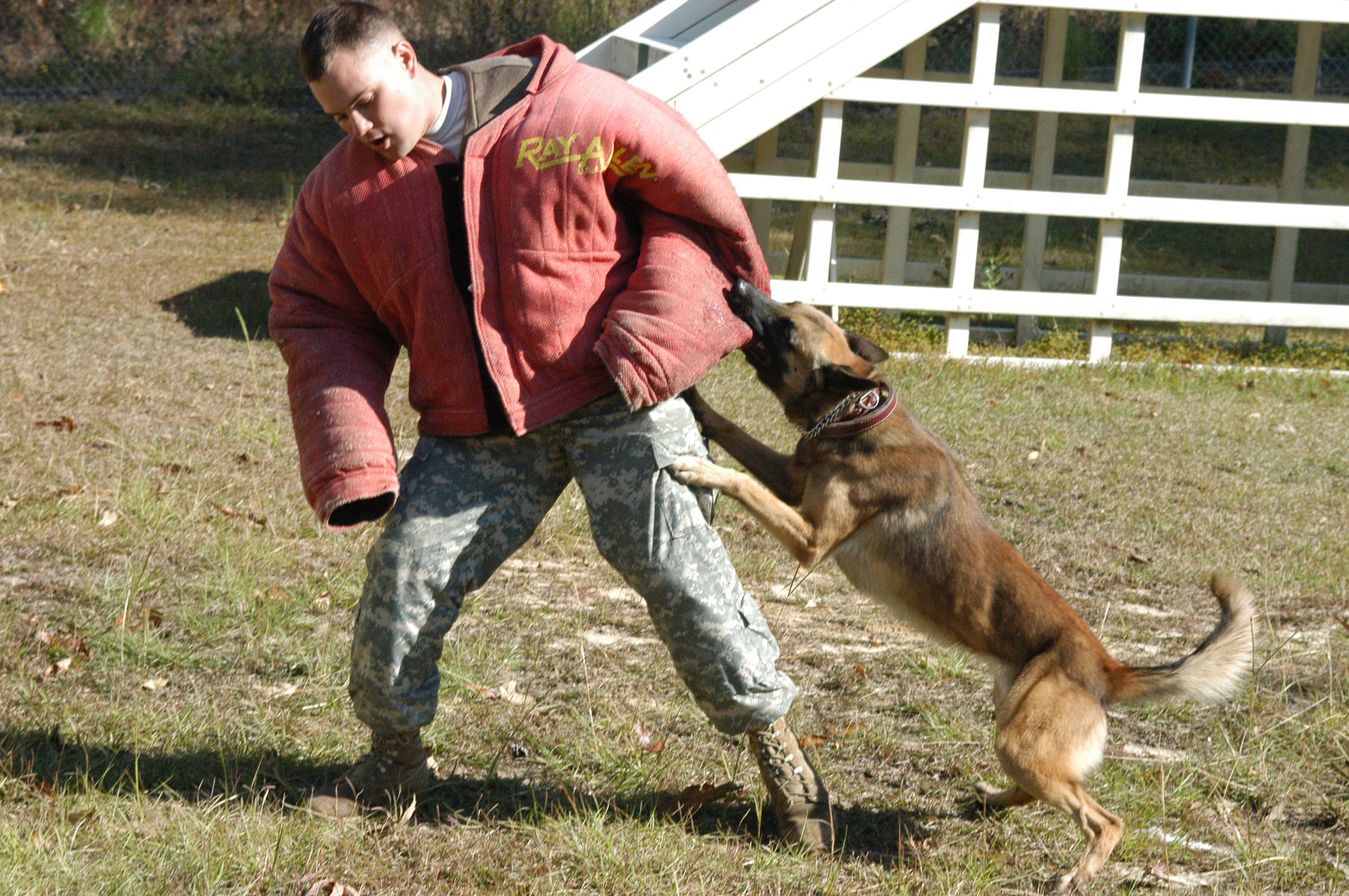A military working dog trots through an abandoned building on Fort Polk, searching for a simulated criminal, who is hiding in one of the back rooms. The dog's handler keeps him on a short leash, and ensures the search is systematic. Staff Sgt. Douglas Walker, Joint Readiness Training Center and Fort Polk's new kennel master, observes the Soldiers of the 91st Military Police Detachment, 519th Military Police Battalion, 1st Maneuver Enhancement Brigade, as they take their dogs through their paces.
After the dog completes the building search, Walker calls a timeout, and brings the first two teams in for review. He points out a few of their missteps, and instructs them in the safest methods for clearing a building. "My issue is your safety, and the dog's safety when you enter a building," he said. "I want you to come home after every shift." When one of the Soldiers applies the lesson, Walker says "that's the best thing about K-9: you learn something every day."
The training was part of validation for the dogs, which occurs quarterly, and when a new kennel master arrives. The validation serves as an assessment of the capabilities of the dog and its handler, and helps leadership determine which teams are ready to certify. Certification is an annual requirement.
The kennel master's role is similar to a company first sergeant. His responsibilities include monitoring the training of MWD teams, managing the daily maintenance and upkeep of kennel facilities and ensuring the health and welfare of the unit's MWDs.
"We really lucked out when Staff Sergeant Walker transferred here from Korea," said Capt. Mellisa LaPlante, rear detachment commander for 519th MP Bn. "He brings a wealth of experience to the MWD program, both as a handler and as a training NCO and kennel master. I have no worries that he will be able to lead the program and ensure that we meet all Army requirements." Walker oversaw three kennels in Korea, and has served as an instructor at the MWD school at Lackland Air Force Base in San Antonio, Texas.
Walker explained his philosophy of the MWD mission. "We have a job here, and that's to protect the community," he said. "We want everyone to feel safe when they come through the gate."
There are always dogs on call at the 91st to respond to the force protection needs of Fort Polk. The dogs are also used for "health and welfare" inspections of barracks, and reach out to the community through demonstrations at schools and public events. Additionally, the detachment's MWD teams deploy individually overseas and support VIP protection missions locally.
Sgt. Daniel Jones explained the effectiveness of the MWDs in operations in Iraq. "Without the dogs, some missions would not be a success," he said. "The dogs found caches that other units had been hunting for months." Another strength the dogs have is their reliability. "The dogs follow commands without question," Jones said. "I wish all Soldiers had the mentality of these dogs. We'd have one helluva Army!"
According to LaPlante, the validation was a success. "The kennel has blossomed in the past few weeks as it integrates new dogs, new handlers and a new kennel master," she said. "I'm thoroughly impressed with the section's ability to function as a team. They have an intense level of camaraderie that you don't find often. As a commander, not having to worry about them getting along or maintaining high standards in training is a huge relief."


Social Sharing